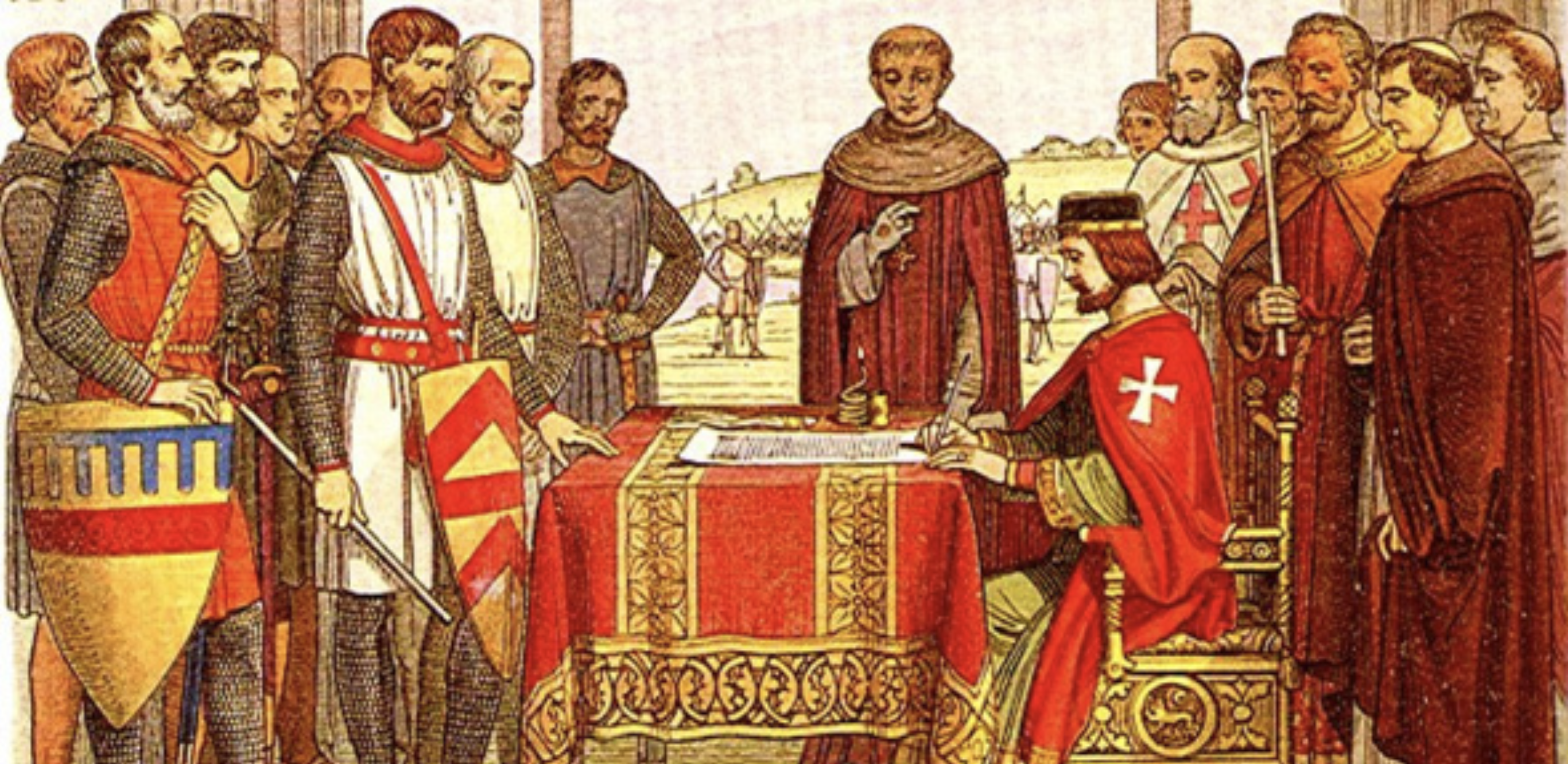Augusto Zimmermann provides a concise brief history of the passage of Magna Carta through the ages, we specifically note the removal of Clause 61 "Lawful Rebellion" in 1216 when the Charter was reissued without the controversial clause.
Clause 61 was quite revolutionary and was directed personally at King John, for it was never included in any of the subsequent re-issues. In part it read:
Since we have granted all these things for God, for the better ordering of our kingdom, and to allay the discord that has arisen between us and our barons, and since we desire that they shall be enjoyed in their entirety, with lasting strength, for ever, we give and grant to the barons the following security:
The barons shall elect twenty-five of their number to keep, and cause to be observed with all their might, the peace and liberties granted and confirmed to them by this charter.
If we, our chief justice, our officials, or any of our servants offend in any respect against any man, or transgress any of the articles of the peace or of this security, and the offence is made known to four of the said twenty-five barons, they shall come to us – or in our absence from the kingdom to the chief justice - to declare it and claim immediate redress. If we, or in our absence abroad the chief justice, make no redress within forty days, reckoning from the day on which the offence was declared to us or to him, the four barons shall refer the matter to the rest of the twenty-five barons, who may distrain upon and assail us in every way possible, with the support of the whole community of the land, by seizing our castles, lands, possessions, or anything else saving only our own person and those of the queen and our children, until they have secured such redress as they have determined upon. Having secured the redress they may then resume their normal obedience to us.
Any man who so desires may take an oath to obey the commands of the twenty-five barons for the achievement of these ends, and to join with them in assailing us to the utmost of his power. We give public and free permission to take this oath to any man who so desires, and at no time will we prohibit any man from taking it. Indeed, we will compel any of our subjects who are unwilling to take it to swear it at our command.
The remainder of the clause deals with filling casual vacancies within the twenty-five, the oath they are required to take, and provides that in the event of disagreement among them on any matter referred to them the verdict of the majority present is to have the same validity as a unanimous verdict of the whole twenty-five. The clause enabled the barons to compel the King by force of arms to keep the Charter. Back from Runnymede, at Windsor, John was decidedly not happy with the inclusion of this clause and, as one historian, John Richard Green, noted in his Short History of the English People ‘“They have given me five-and-twenty over-kings” cried John in a burst of fury, flinging himself on the floor and gnawing sticks and straw in his impotent rage.’ Thereafter he repudiated the Charter, the Pope annulled it and John hired mercenaries to take up arms against the barons who in turn invited the French king, Philip’s, son, Louis, to invade England and take the Crown. Matters were only resolved when John fortuitously died in 1216 and was succeeded by his son, Henry III, then only nine years old, whereupon William the Marshall assumed the regency and had the Charter re-issued without clause 61.
From Page 196
282 pages.
